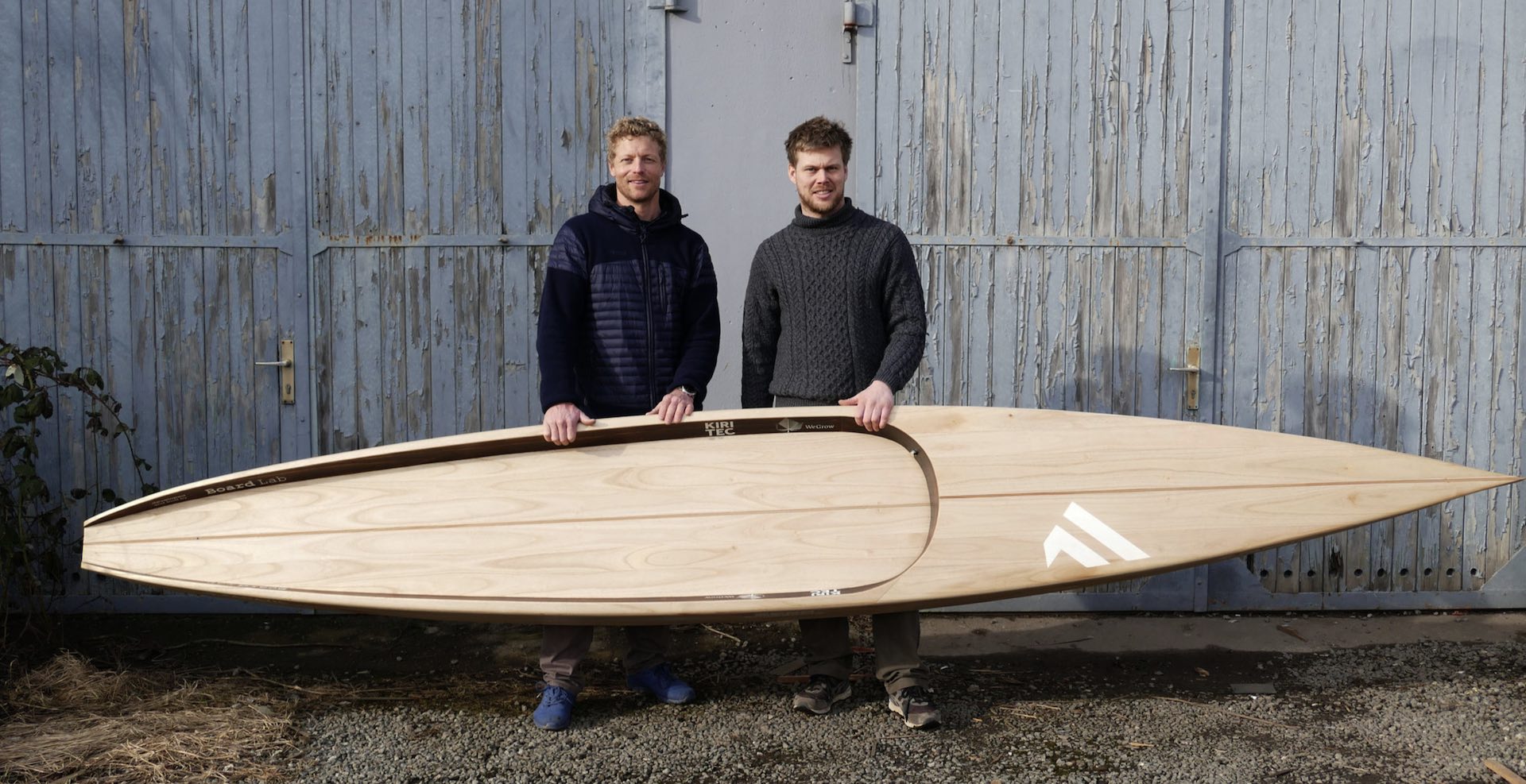
The goal: To produce a fast, light and stable Stand-Up Paddleboard (SUP) that has the lowest possible impact on nature. Michael Walther and Janneck Grocholl with support from Fanatic have produced a SUP from 95% renewable resources.
*Press Release: zeroemissions.eu
Zero Emissions Project (Michael Walther) and BoardLab (Jannek Grocholl), with support from Fanatic, have succeeded in creating the Ray Eco.
The Ray Eco is probably the most sustainable SUP in the world. Instead of glass or carbon fibers, wood is used, and the usual foam core has been replaced by a rib structure made of the same material. You will look in vain for a protective layer of toxic varnishes or resins, this board is sealed with organic linseed oil. Even the logos and lettering on the board are applied to the wood using natural pigments.
In addition to the board itself, the team also designed everything for sustainability during production and during the steps leading to it. “The board should have a minimal impact on nature during its full life cycle,” Grocholl said. “In doing so, it was important to us that this is not just a marketing story that looks neat, but upon closer inspection, also offers advantage over conventional boards.”
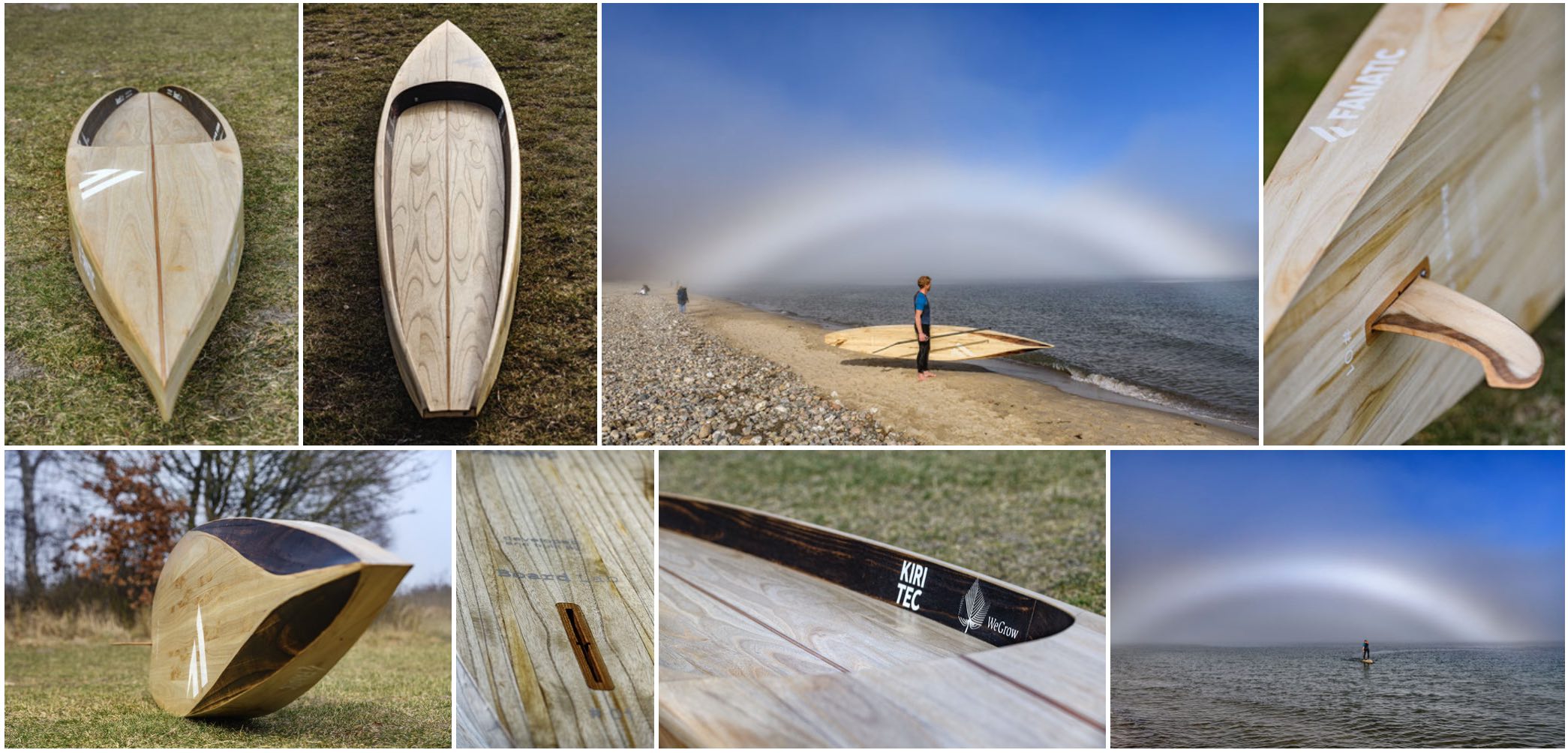
The sustainably grown wood comes from the Kiri tree, which is also grown in Germany, among other countries. The wood from this fast-growing tree comes from the company KIRITEC, which is part of the WeGrow Group. In addition to the low water consumption, Kiri offers other ecological advantages: The trees of one hectar can bind approx. 35-40t CO2 per year – four times the binding capacity of an average mixed forest. In addition to the ecological aspects, the wood offers a particularly low weight and very good seawater resistance. The BoardLab team takes advantage of these benefits for the design and construction of the board.
“Water sports articles are pure luxury products that no one necessarily needs. It is therefore even more important to keep a critical eye on resource consumption and the impact on the environment,” explains Michael Walther. “The fact that plastic products today are partly advertised as “sustainable” just because they last a long time is a farce in my eyes. This argument only counts if the article is actually used for a long time. But this is rarely the case with products that are subject to a trend – clothing is an example here, boards as well. After all, many water sports enthusiasts buy new equipment because they want something new, even though the old one is still technically perfectly okay.”
To ensure long-term usability, the wood of the Fanatic Ray Eco is treated with organic linseed oil. This coating must be renewed after some time, similar as with good leather shoes. So a little care is needed to keep the board in its noble condition for decades. Thus, the board stands in contrast to our other way of consuming. Instead of the quick purchase and throw-away society, here the craftsman’s love for detail and the necessity for preserving care is taking its place.
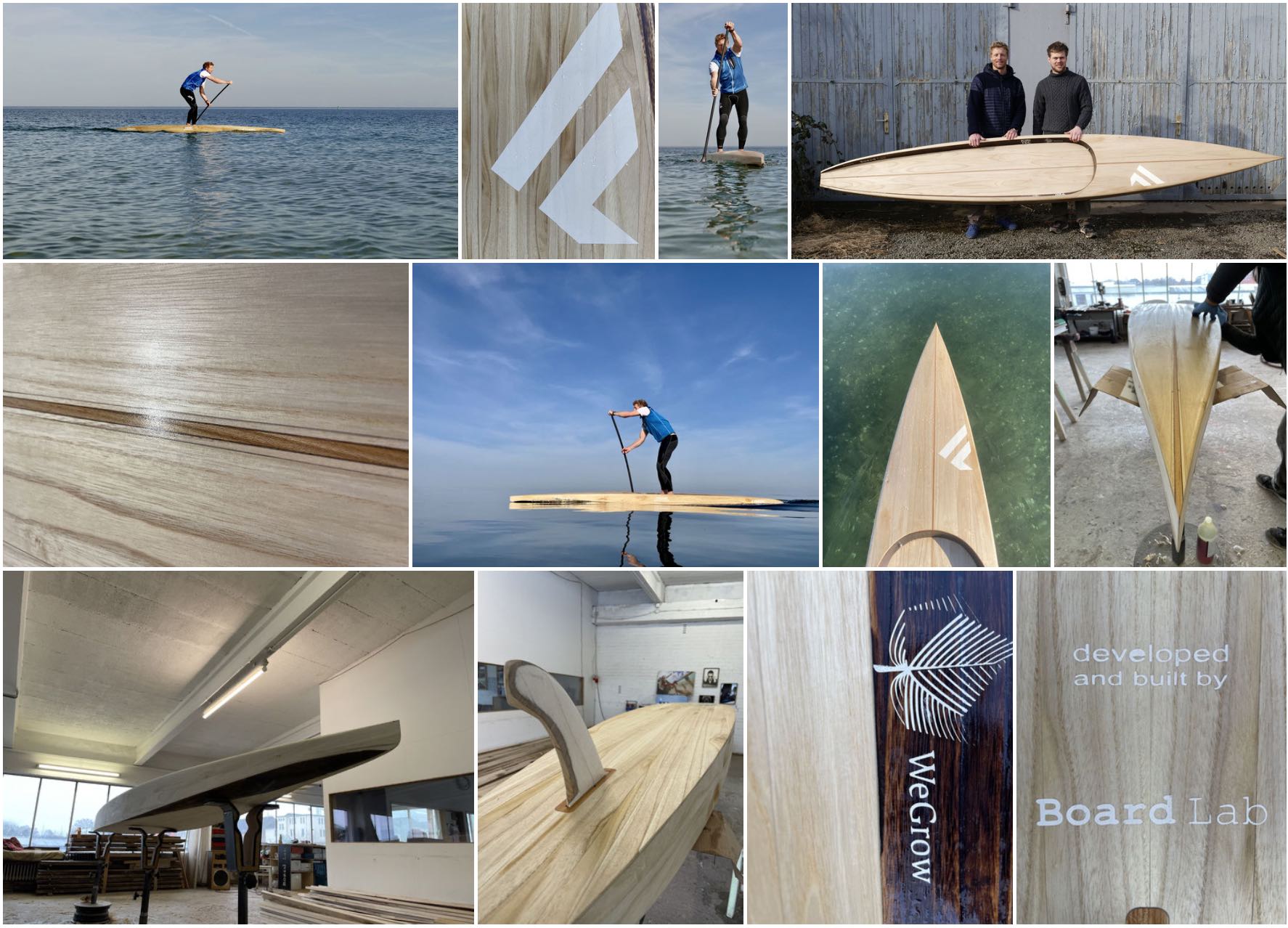
The board is more than a feasibility study. Extreme sportsman and environmental activist Michael Walther will be taking this board on a number of special tours in the coming months to ensure that it can cope with all the demands placed on it. Those who know the Kiel native know that this is not too much to promise. For example, Walther paddled along the coast of Greenland in May 2018, circumnavigated Schleswig- Holstein in 2019 and covered more than
1300km on his journey from Basel to Kiel in 2020 on his Stand-Up Paddleboard.
After these tests, the Fanatic Ray Eco is also available for other Stand-Up Paddlers with an enthusiasm for high-quality natural products. The BoardLab in Kiel will produce a small series of these boards every year. Of course, customers are not left alone after the purchase. Jannek Grocholl and his team make the BoardLab workshop available to the paddlers for the care of the board, guide them or, if necessary, take care of it themselves.
Background Information
Michael Walther (Zero Emissions Project)
The native Norderneyer lives since 22 years in Kiel. After completing his law studies, the passionate water sportsman decided to pursue a career as a professional sailor. Three German championship titles and participation in the Extreme Sailing Series were the result. In addition to water sports, environmental protection has always played a major role in his life. More than 12 years ago, he founded the Zero Emissions Project together with Thomas Reinke. Their goal was to draw attention to climate change with spectacular water sports events and to inspire people to exercise out in nature. Supported by the Kiel City President Kathy Kietzer, the project took a trimaran on emission-free voyages to all Baltic Sea countries in the winter of 2009. This action was followed by many more sailing events before Michael also integrated Stand-Up Paddleboarding in 2015.
Jannek Grocholl (BoardLab)
Jannek (31), who grew up in a sailing family in Schleswig-Holstein, has cultivated a great passion for water sports since his childhood. Thus, the boat builder has been driving the development of Surfboards and Kiteboards since ten years. A special focus is always on the avoidance of toxic and environmentally harmful materials, without limiting the durability and functionality. Four years ago, Jannek started the workshop format BoardLab parallel to his studies, where participants* build their own Surfboard or Kiteboard within 2 to 4 days. As part of his bachelor’s thesis, he developed a patent-worthy approach to building the sliding surface of a Kiteboard with a variable shape so that the cross-section of the board adapts to the riding situation.
Contact:
Zero Emissions Franckestraße 5 24118 Kiel Germany
Tel.: +49173 6228467
Mail: info@zeroemissions.eu
www.ZeroEmissions.eu

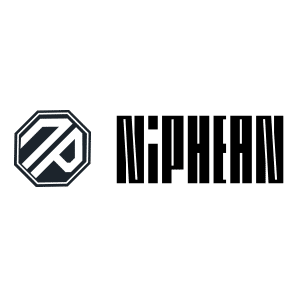
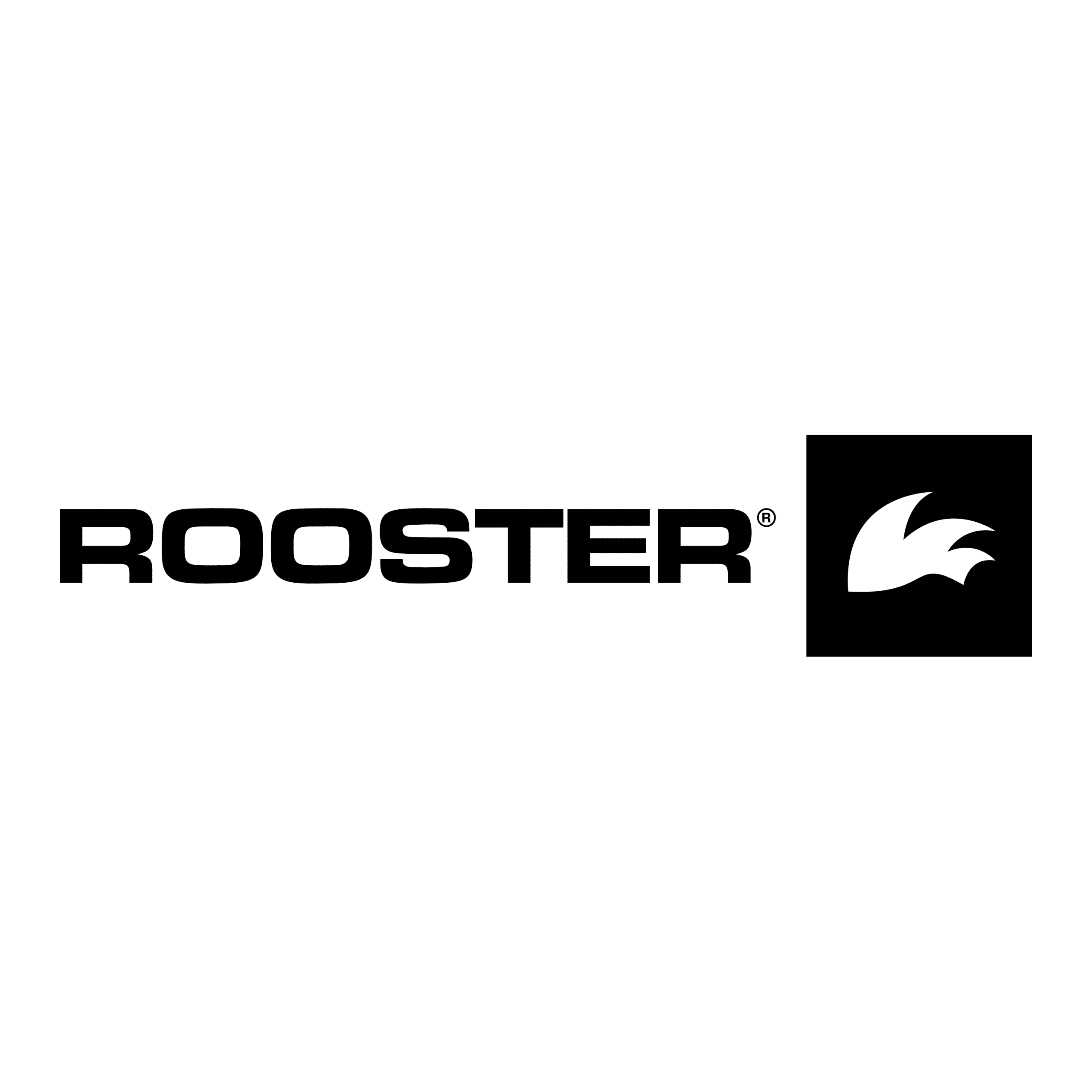

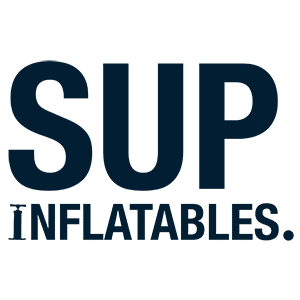


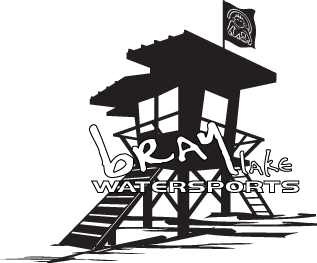

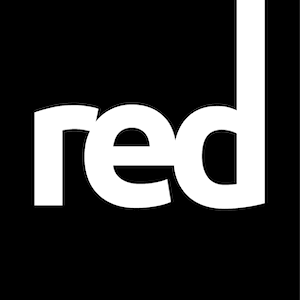
Truely beautiful board but the termites would destroy it if you put it in the shed.
O yes.. good point! That would not be a nice sight to see if you have termites.
This is great. We need to see this construction becoming the norm in SUP world.
Yes it would be great.